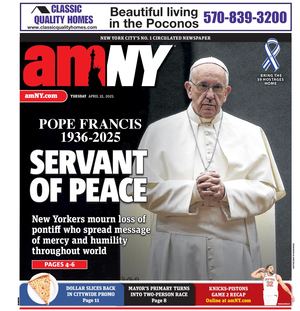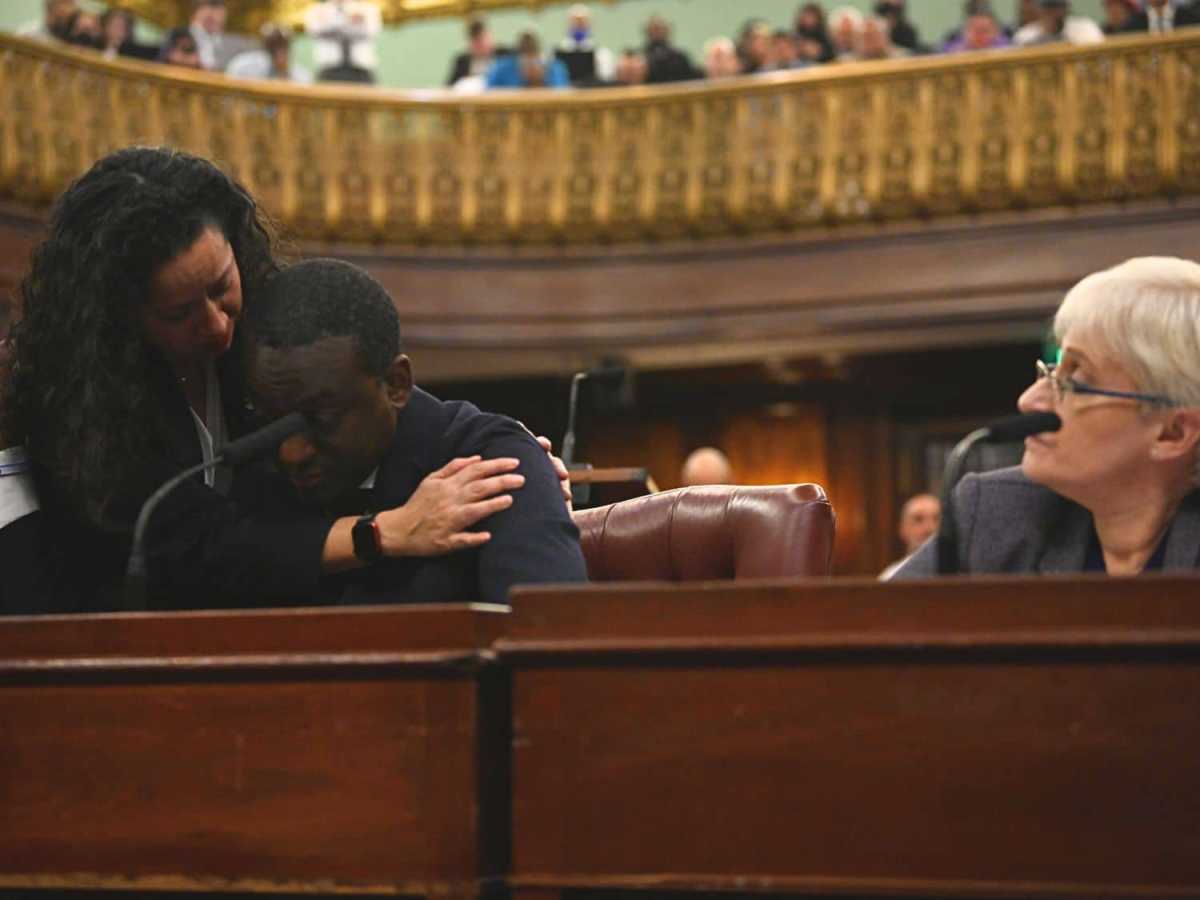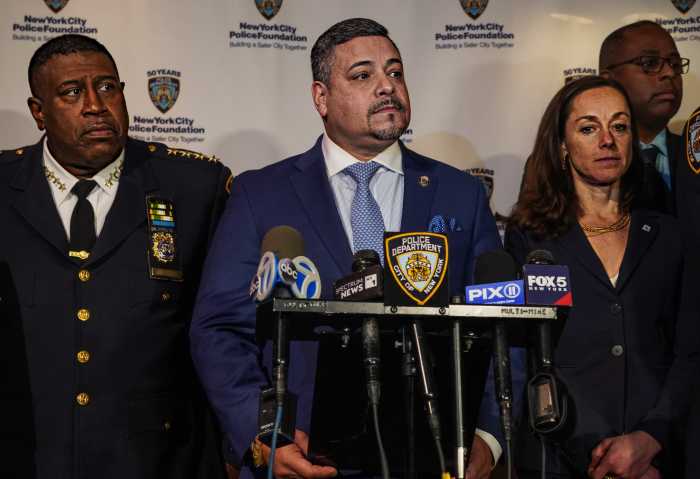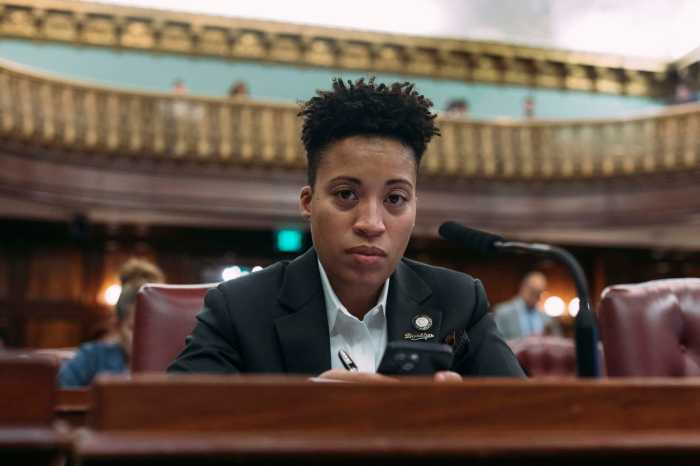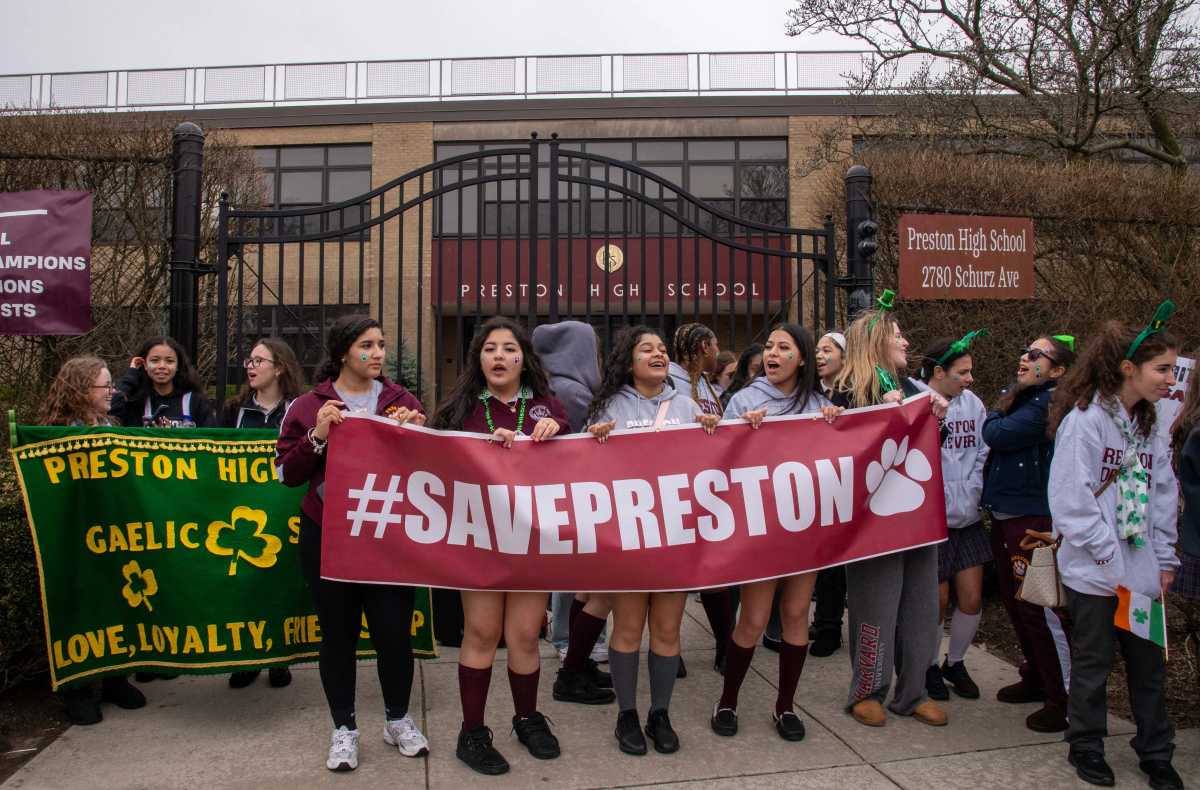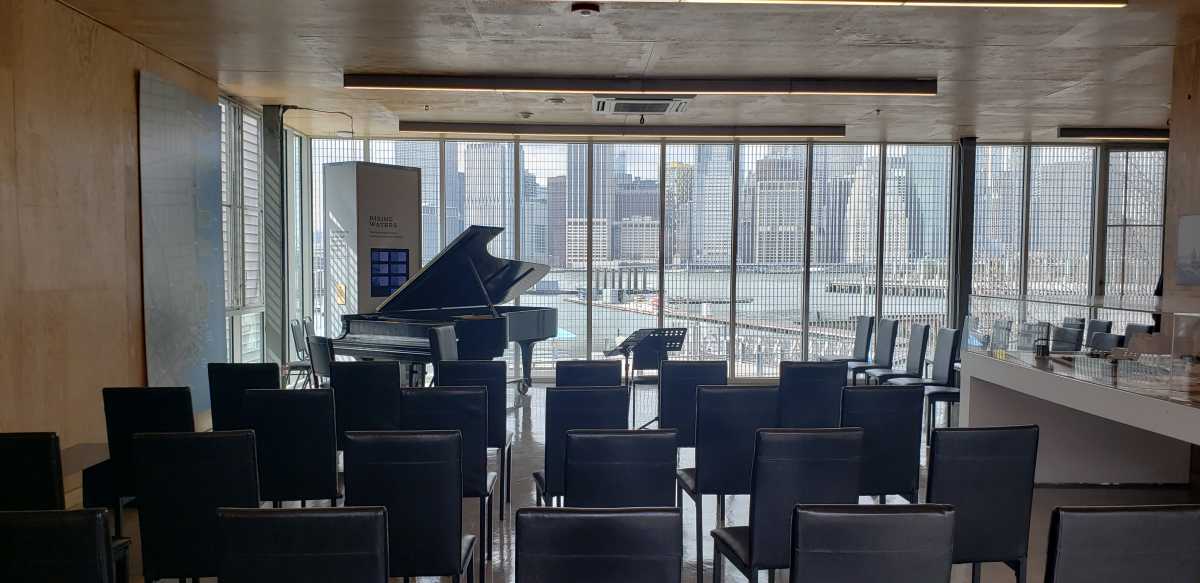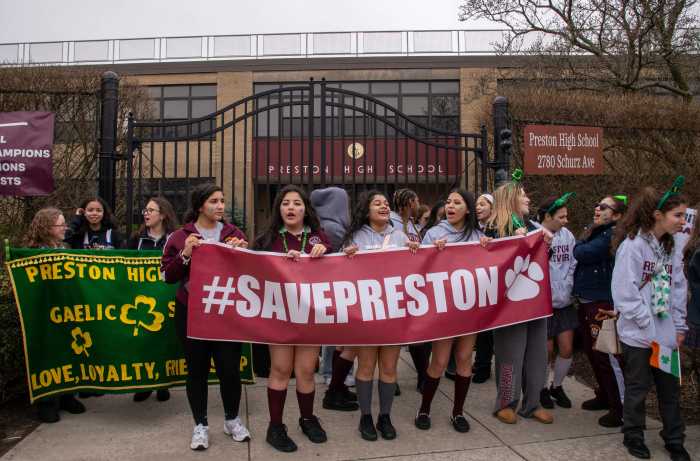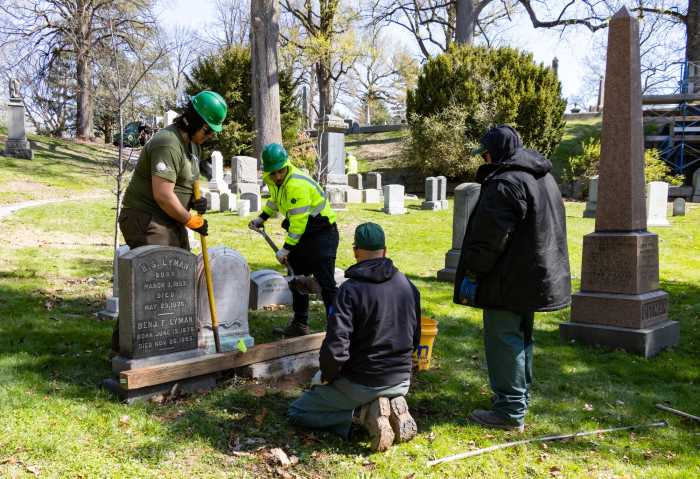The City Council on Tuesday voted in favor of overriding Mayor Eric Adams’ recent veto of the “How Many Stops Act” NYPD transparency bill — an expected conclusion to a fierce weeks-long battle over the legislation’s fate.
The 51-member council overrode the mayor’s veto with 42 votes in favor, nine against. The legislation garnered seven votes more than the 35 votes the council originally passed the two-bill package by late last year.
The bills are designed to deter unlawful civilian stops by gathering more data on an officer’s interactions with the public, following the 2013 U.S. Supreme Court decision that ruled the NYPD’s use of stop and frisk unconstitutional.
The council passed the legislation, which is aimed at boosting NYPD transparency by requiring the cops to report demographic data from lower-level stops, again after the mayor vetoed it late last year. The mayor opposed the bills, arguing that they would jam up cops with additional hours of paperwork, which would take them away from police work.
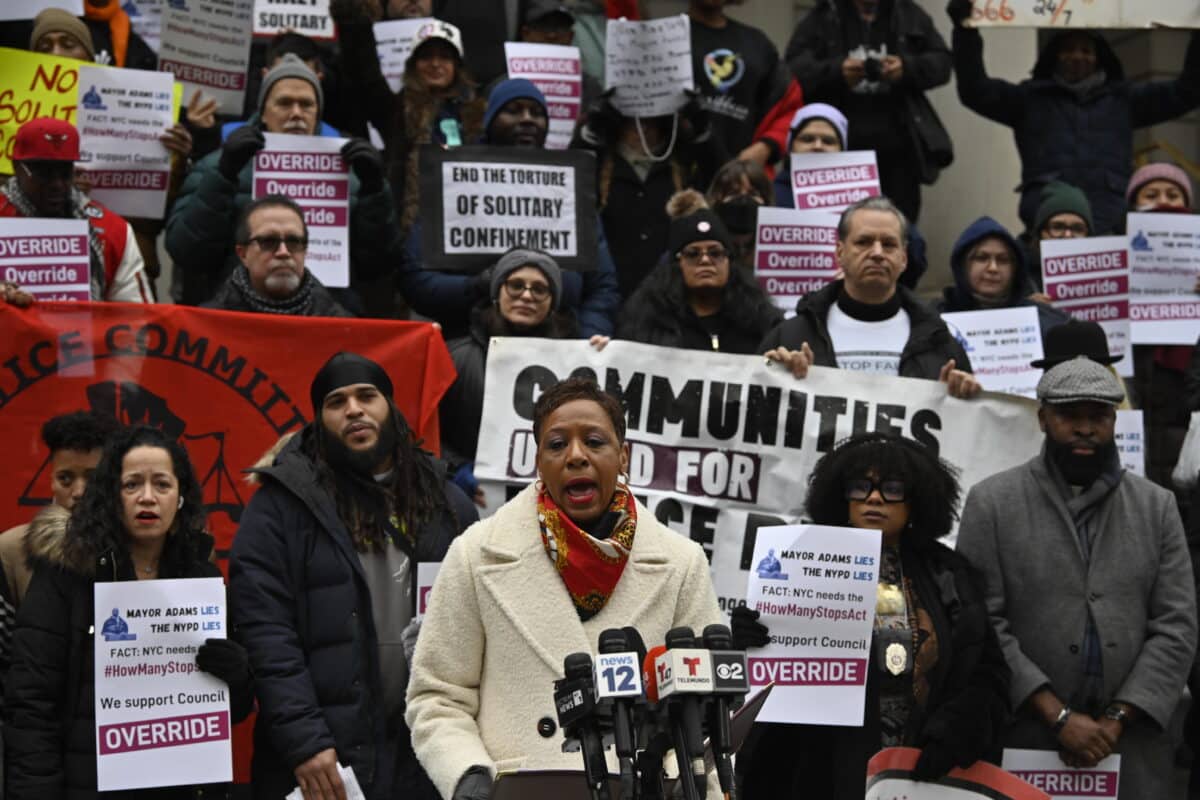
The fight over the bills became increasingly fierce in recent weeks, with both the mayor and council leadership accusing one another of spreading misinformation. The battle even devolved into the mayor’s office removing chairs from the City Hall Rotunda ahead of a City Council press conference in support of the veto override last week.
Nonetheless, the council stood together to advance the bills over the mayor’s protests. Just before the vote in the council chamber at City Hall, Speaker Adrienne Adams noted that the council would be overriding the mayor’s veto to shine a light on investigative police stops that target Black and brown people.
“Today the council will be voting to override the mayor’s vetoes of … the How Many Stops Act,” the speaker said. “The council advanced the How Many Stops Act to address the lack of transparency in these investigative stops. These stops can no longer be in the shadows because the pain and trauma they cause to communities have long-lasting impacts.”
The council also overrode the mayor’s veto of a bill to ban solitary confinement.
Not backing down
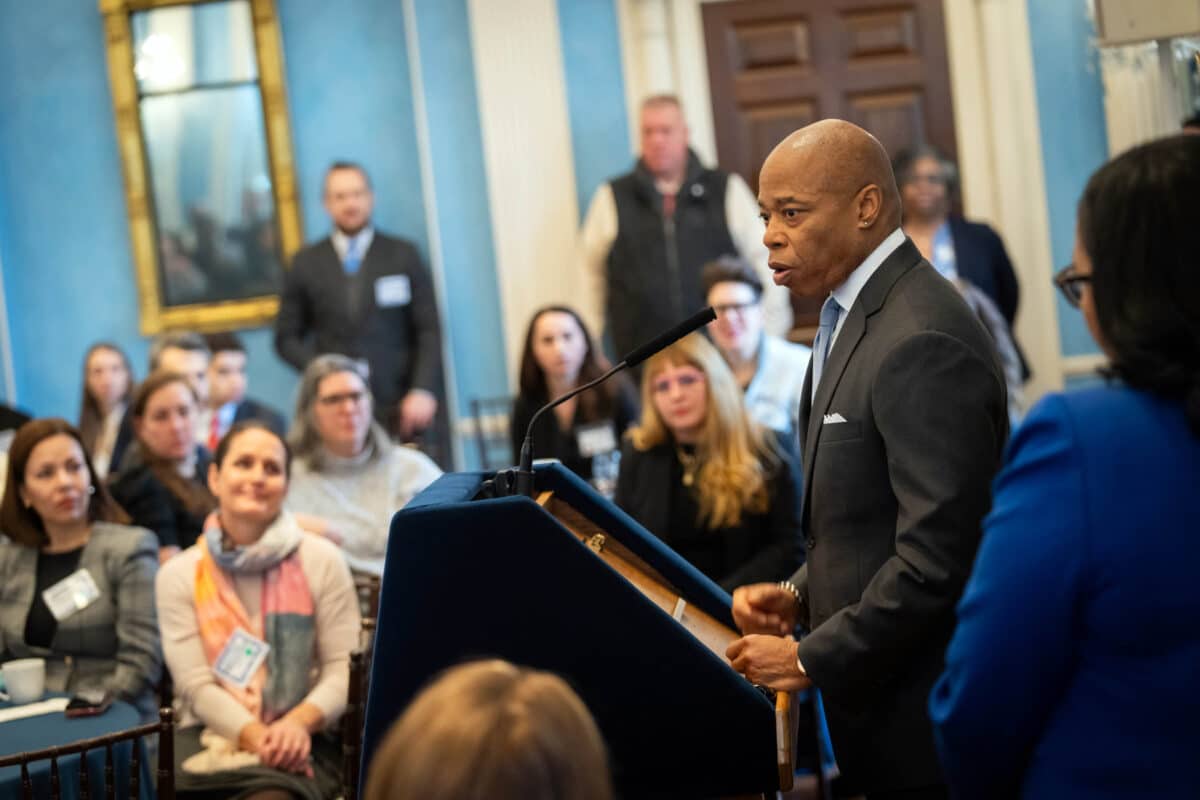
However, the mayor stood by his criticisms of the How Many Stops Act. In a statement released following the vote, he said it would make the city “less safe.”
“These bills will make New Yorkers less safe on the streets, while police officers are forced to fill out additional paperwork rather than focus on helping New Yorkers and strengthening community bonds,” the mayor said.
During the vote, council members made impassioned speeches both for and against the legislation.
Emotional remarks were voiced by Bronx Council Member Kevin Riley (D), who was responding to conservative Council Member Vickie Paladino (R-Queens) — who voted against the override, asking her colleagues not to make police transparency a “racial issue.”
“We didn’t make this a race thing, this is a race thing,” Riley said. “This is what we have to deal with on a daily basis. I’m speaking to you as a Black man who has to deal with this on a daily basis.”
Council Member Yusef Salaam, a member of the exonerated “Central Park Five,” said the bill would bring “generational change” to the city’s criminal justice system.
In casting their votes in favor of the legislation, several council members made it clear that they are still devoted to public safety and called for “transparent” implementation of the measure.
City Council Member Kamila Hanks (D-Staten Island), formerly the body’s Public Safety Committee chair, voted for the veto override but made it clear that she has concerns about reporting on the lowest level police encounters — known as “Level 1” stops. She said her perspective was shifted after participating in a police ride along organized by the mayor over the weekend.
“As we move forward in passing [the legislation], let’s make sure as council members, as legislators, that we keep a close eye on the implementation,” Hanks said. “And should any challenges arise, that we work together to amend this, so we continue to make this the best bill for all New Yorkers.”
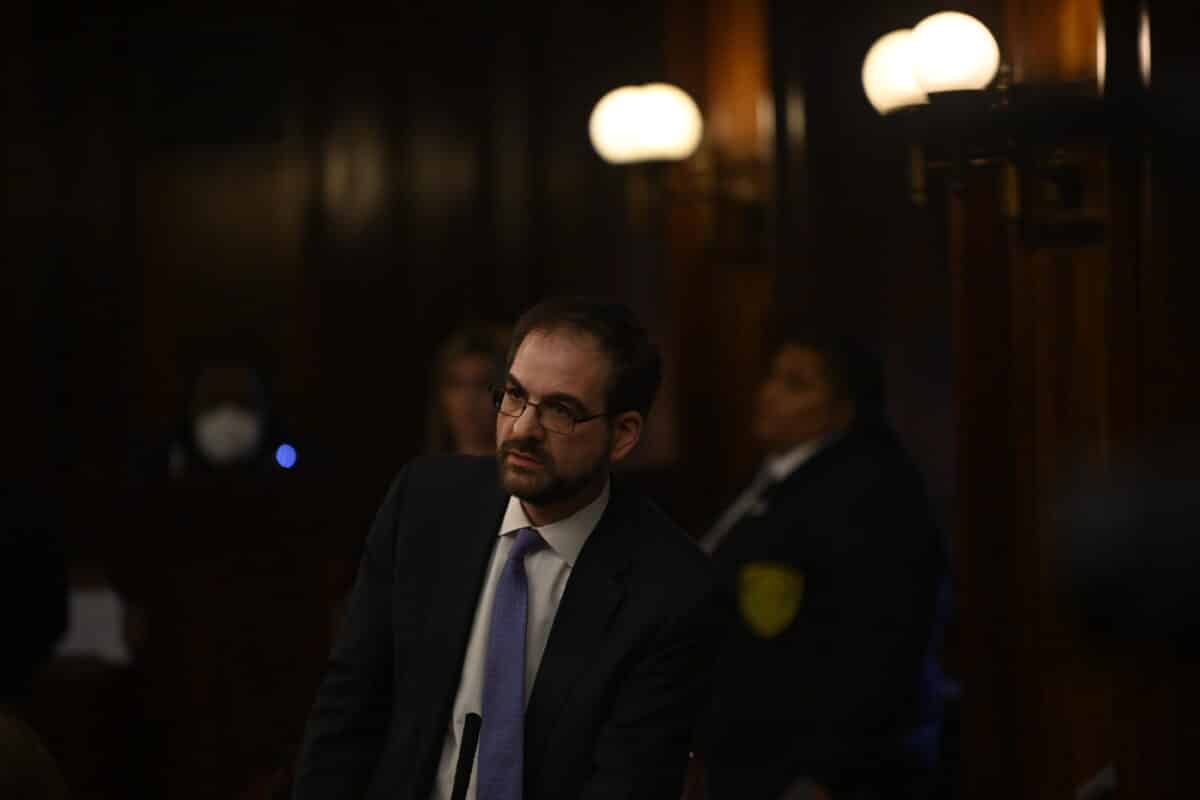
There was a brief hiccup during the meeting when conservative Democratic Council Member Kalman Yeger (Brooklyn) attempted to halt the proceedings, claiming the council did not provide an agenda with enough notice prior to the gathering. But the effort ultimately failed.
Earlier in the day, the mayor made a last-ditch appeal to council members to vote against overriding his veto and go back to the drawing board to draft new bills that leave out reporting on the Level 1 stops.
“I’m urging the council to uphold the veto today and to spend some time correcting the area of the bill, the only area of the bill, that I have a disagreement on,” he said.
Mayor Adams also indicated that while the council moved the legislation forward over his protestations, there is still an opportunity to amend it during the implementation period over the next few months. But city Public Advocate Jumaane Williams, the legislation’s prime sponsor, has said any change that strips Level 1 stops from it would essentially, “gut the bill.”
“We need clarity on exactly what their desires are, and we could get there without, as he said, gutting the bill,” the mayor said.
What it all means
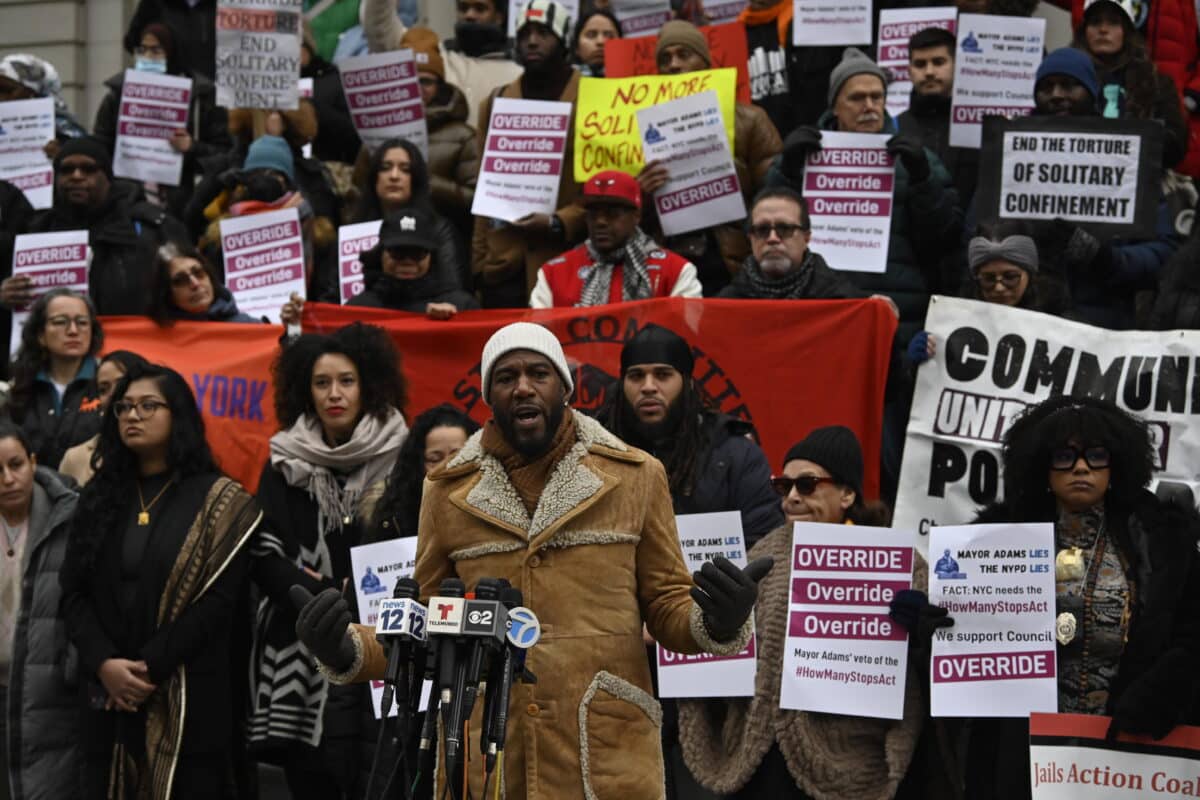
The mayor’s central qualm with the bill is its requirement that cops report on what are known as Level 1 encounters, which are interactions where officers with an “object credible reason” request basic information from civilians like their identification or where they are going. Civilians have the right to walk away from Level 1 stops.
The bills require officers to record demographic data of those stopped, including their race and gender.
The measure also mandates cops to report on “Level 2” encounters, which involve asking “more pointed questions” based upon “founded suspicion that criminal activity is afoot” — which is part of the bill that Adams does not have an issue with.
Presently, cops only have to report on stops “Level 3” and up. Level 3 encounters are more commonly known as “stop, question and frisk.”
The mayor and NYPD charge that having to report on Level 1 encounters will add paperwork to officers’ workloads and drastically increase overtime spending. They also claim level one stops include interactions as mundane as a person asking cops to help find their lost dog.
Council leadership and the public advocate say the bills would not require any paperwork at all and it is completely up to the NYPD to decide how they should be implemented. They say the cops could make gathering the information as simple as adding a dropdown menu to an app that officers already use on the department issued smartphones.
Additionally, Williams said the information can be filled out in whatever way is easiest for the officers.
“Telling people that officers have to stop what they’re doing to fill out a form is not a good faith effort to have a conversation,” Williams said. “We have laid out a plethora of different ways that offices can do it, whatever is the best easiest way for them that does not interfere with what they’re doing.”
Read more: NY Officials Demand Release of Israeli Hostages on Day 100
